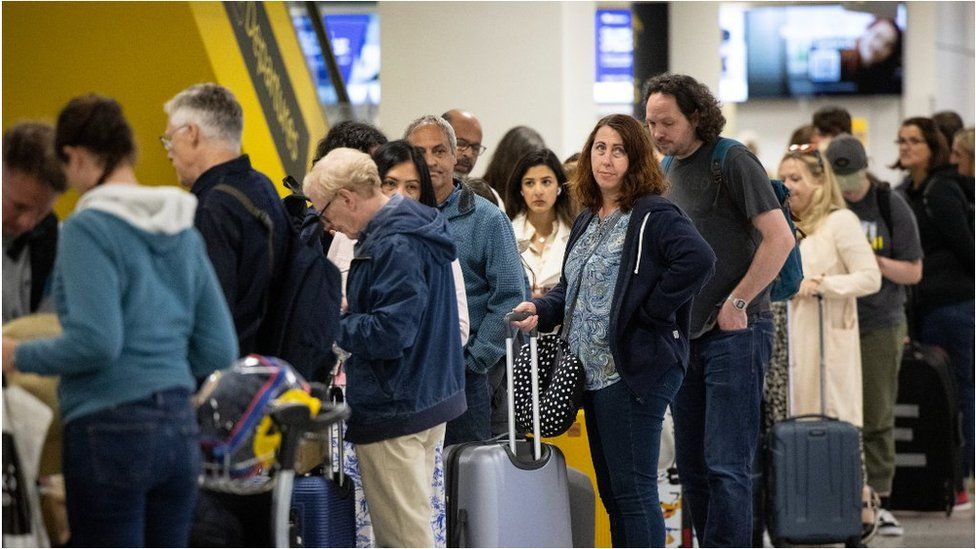Why the airport chaos across Europe?
July 30, 2022 Leave a comment
While the various parties blame each other for the airport chaos across Europe primarily because of a shortage of staff, it is interesting to read what some people are saying are contributory factors. Muse and be amused, however you take it.
Travellers are packing more in their hand luggage
According to London’s Heathrow Airport chief executive John Holland-Kaye, long queues at the airport are caused by passengers “travelling with more than they normally would.” He made specific mention of “liquids”. He said: “A lot of people are put off from checking in all of their makeup, for example, because they are worried about whether their bag will make the journey with them.” This means it takes a longer time for clearance, and the consequence is a flight delay.
It is true that more people are travelling with more in their hand luggage although how much more is questionable as there is a limit that they can pack into a bag. It is almost a chicken-and-egg problem. Travellers have lost confidence in their checked baggage travelling with them.
An epidemic of home working
According to Qatar Airways chief executive Akbar Al Baker, staff shortages faced by the airlines and airports across Europe was the result of an “epidemic” of home working. He said: “This all happened because people learned to get easy money from working out of their homes, and fewer people now want to come and do the jobs that they were doing.”
So you could put all the blame on the Covid-19 pandemic if not the changing work culture caused by it. But there is a price for everything in the equation of supply and demand. There are more than just one factor. Airports are saying airlines are not willing to pay the market rates, and unions point out that the work has become much too stressful under present circumstances. Airlines in turn blame the authorities for the cumbersome procedures to certify new employees.
According to a baggage handler at London’s Heathrow Airport, the old technology of the baggage system has compounded the problem. He added, “There are not enough baggage belts for the amount of flights. You could be waiting half an hour for a belt when a flight comes in. Within that half an hour, another flight will come in, which makes it ten times worse.”
In the end, it is the passengers who suffer the consequences.
If anything, the pandemic should have been a wake-up call to how things are changing. It is a time to rethink, adapt, innovate, invest and improve.
A problem of black bags
According to Frankfurt Airport, the chaos is partially caused by too many people travelling with black suitcases. Its spokesperson Thomas Kirner said: “Many people travel with black suitcases on wheels which makes identifying them very time-intensive.”
It used to be a worry of travellers not being able to spot their bags fast enough before someone else picks them up at the arrival belt. In any case, bags are loaded according to their tags, and should arrive at the destination according to the procedure. In is understandable that in the present climate, it makes the job of retrieving lost bags among a mountain of them more onerous. Until black becomes less common, travellers may find it good advice to go for a different colour.
Twilight Bag Drop for easyJet passengers
Airlines are encouraging their passengers to get to the airport earlier than usual to ensure they have time to drop their bags off for timely loading on to the same flight, Budget carrier easyJet goes one step further by reintroducing Twilight Bag Drop which allows its passengers to check in their bags the night before their flight. This is available at some airports including London Gatwick, Bristol Airport and Berlin Brandenburg Airport in Germany.
Well, why not, if you live near enough the airport?









